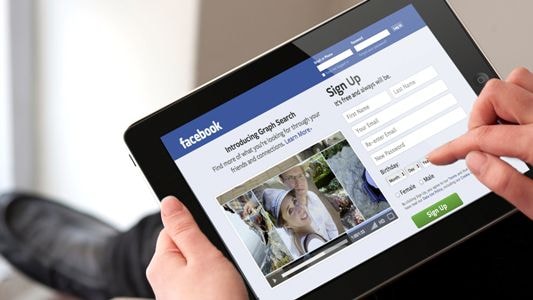The Dark Side of Facebook
It is undeniable that Facebook plays an important role in the lives of young people today. They use Facebook as a means of connecting, sharing useful information in life and study, thereby communicating and finding opportunities to assert themselves. Young people can also connect and cooperate with each other through Facebook to form groups to carry out social work...
 |
| Users often spend a lot of time "taking care" of their Facebook accounts. Photo: theguardian.com |
However, Facebook abuse is increasingly showing its consequences. In addition to being addictive and time-consuming, significantly reducing productivity in studying and working, this social network can make you vulnerable to viruses or malware, and can even have your personal information stolen if you are not careful.
Addictive, stressful
According to a recent study conducted by Associate Professor of Psychology Leif Denti at the University of Gothenburg (Sweden), spending too much time on Facebook can be addictive. Participants in the study admitted that they felt uncomfortable if they could not regularly check their Facebook accounts. Some even asserted that they felt like they were losing something very precious if they could not update their status or post new photos or videos. According to this study, users do not even realize that they are abusing social networks, using it as an unconscious habit.
Facebook can be a serious threat to the productivity of both students and office workers. Research conducted at Ohio State University (USA) shows that students who use Facebook only study for 1-5 hours/week, while the rest often study for 11 hours or more. Learning efficiency can be affected by students wasting time on Facebook playing games, chatting with friends or looking at new photos. Many games on Facebook often require you to be online continuously or you will be disconnected.
Studies by Nucleus Research have shown that an average of 1.5% of total office productivity is lost through employees accessing Facebook during work hours. About 70% of the study participants revealed that they access their Facebook accounts while at work, with 6% admitting that their entire Facebook profile was created at work.
In Vietnam, according to a March 2015 report by WeAreSocial, we spend more than 5 hours a day on the Internet for computer users and nearly 3 hours for phone users. Most of this time is spent on social networks. The average total time a Vietnamese person spends on social networks per day is 2 hours. In addition, according to a survey by GlobalWebIndex, Vietnam is one of the 10 countries with the most Facebook access in the world.
Psychological studies at California State University have shown that excessive use of Facebook can cause stress. According to a survey by the Pew Research Center’s Internet & American Life Project, up to 15% of teens on social networks show signs of psychological insecurity, while 88% admit that they have witnessed others being stressed. Since Facebook allows users to upload photos of themselves that can then be “liked” by friends, many teens feel depressed if their photos do not receive as many “likes” as their friends. They also often have to participate in online arguments, and as a result, their psychology is affected by negative arguments.
Personal information stolen
In early 2015, Facebook became the social network with the largest number of users in the world. They confirmed that this social network currently has nearly 1.4 billion users worldwide, accounting for 20% of the population on earth.
With such a large user base, Facebook is a target for bad actors to spread viruses and malware, despite the service provider’s efforts to prevent it. When a Facebook account is compromised by a virus or malware, it often automatically posts links and status updates to trick other users. Clicking on one of those links could result in your account being compromised.
Facebook allows you to share a lot of personal information, which in some cases can lead to identity theft. Unless you are very careful about your account privacy settings or are careful about accepting friend requests from strangers, Facebook can expose your personal information to the wrong people. Hackers can then use this information to gain access to your other online accounts, or even open new accounts using your identity.
The information that users voluntarily disclose on Facebook is often the same information used as standard security questions when opening an online account. As a result, careless users can suffer a lot of damage related to their reputation and finances.
According to baotintuc.vn






